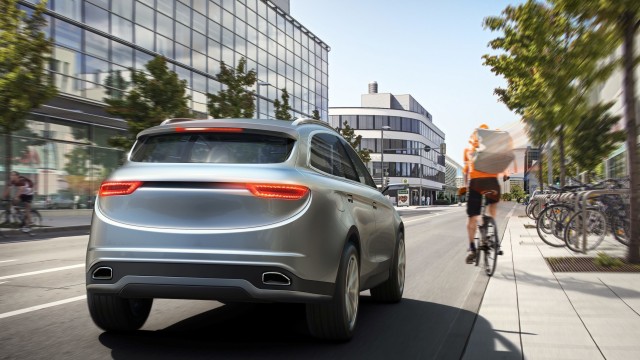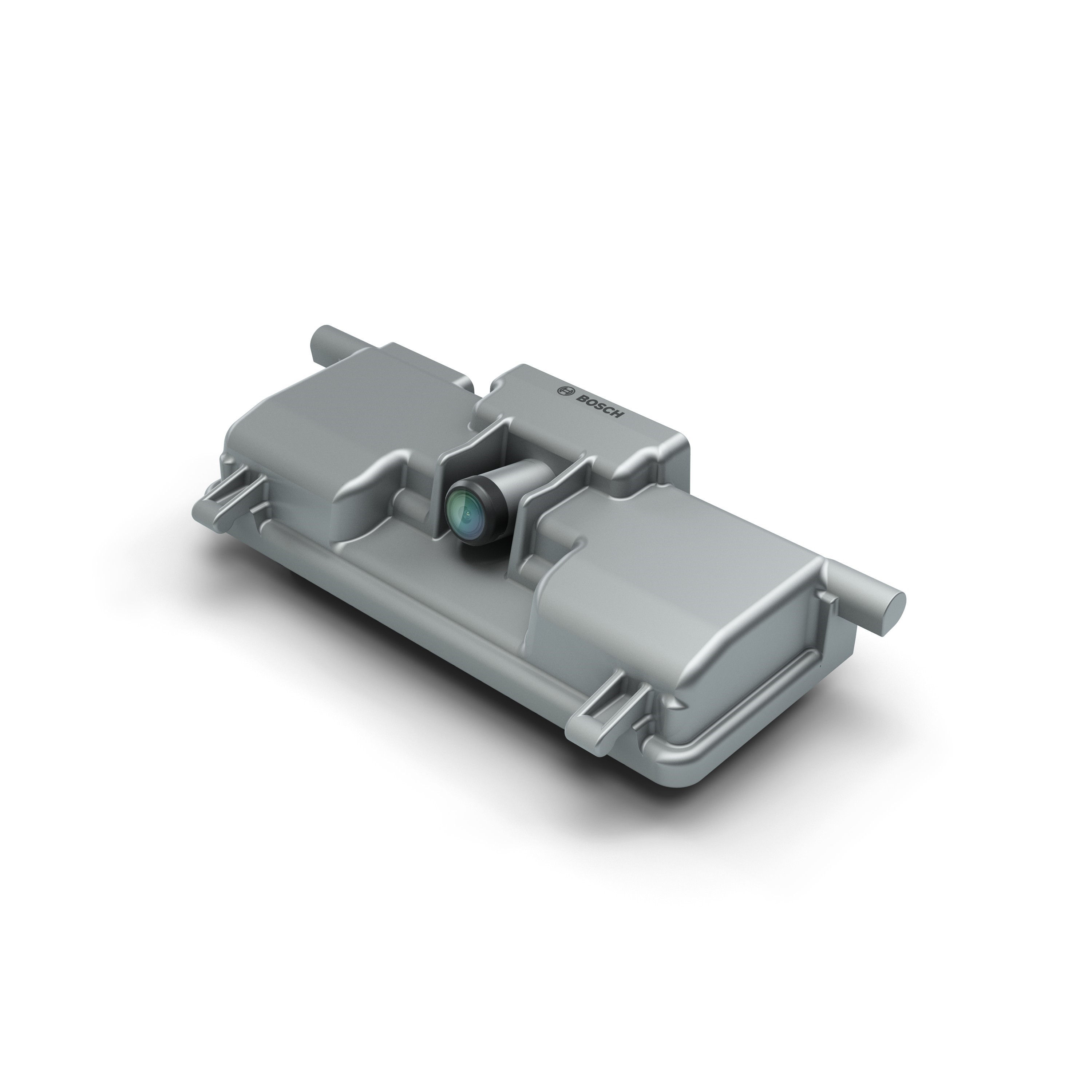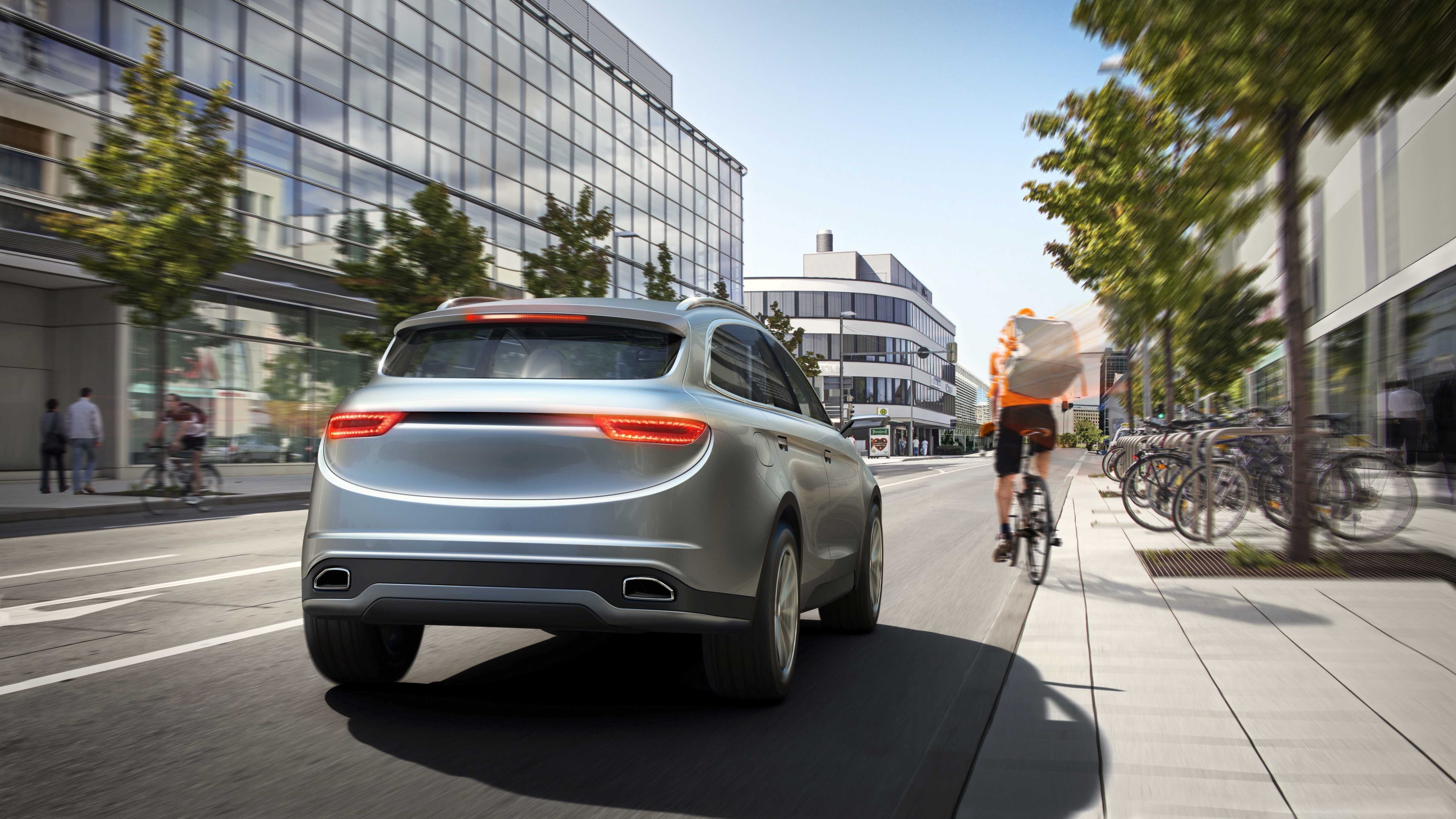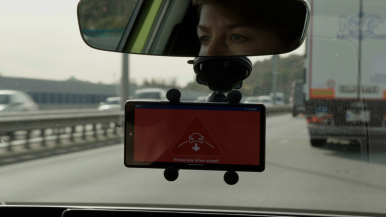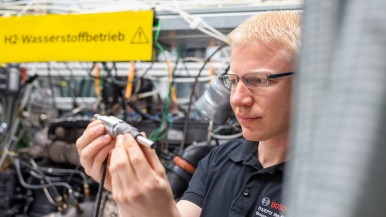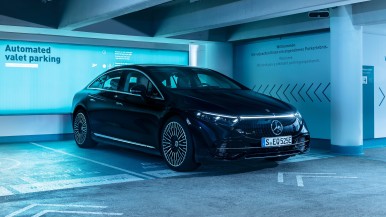Automated driving essentially means the gradual displacement of people at the wheel of a car by technology. But there is more to it than that: "We want to make cars better drivers than people, and in this way to increase road safety. In other words, technology has to work more reliably than people," says the Bosch management board member Harald Kröger. That presents a major challenge, particularly in terms of surround sensing. Only if it knows exactly, and at all times, what is going on around it can an automated vehicle choose the right, and above all safe, driving strategy. Bosch uses various technologies for surround sensing, including ultrasound, radar, and video. When it comes to structure and function, cameras come closest to the human eye, which is why they will be such invaluable assets for automated driving, and indeed why they already play a key role in driver assistance. Bosch has now succeeded in taking automotive camera technology to a new level. This new Bosch technology is set to debut in vehicles in 2019. The combination of its unique multi-path approach and artificial intelligence (AI) for object recognition will make surround sensing far more reliable, and road traffic safer. Bosch aims to be the market leader, and the measure of all things in camera technology.
About Bosch
Bosch has been present in Belgium since 1907. The Bosch Group employs approximately 1,050 associates in Belgium. The main sites are located in Tienen, Anderlecht and Mechelen.
The Bosch Group is a leading global supplier of technology and services. It employs roughly 428,000 associates worldwide (as of December 31, 2023). According to preliminary figures, the company generated sales of 91.6 billion euros in 2023. Its operations are divided into four business sectors: Mobility, Industrial Technology, Consumer Goods, and Energy and Building Technology. As a leading IoT provider, Bosch offers innovative solutions for smart homes, Industry 4.0, and connected mobility. Bosch is pursuing a vision of mobility that is sustainable, safe, and exciting. It uses its expertise in sensor technology, software, and services, as well as its own IoT cloud, to offer its customers connected, cross-domain solutions from a single source. The Bosch Group’s strategic objective is to facilitate connected living with products and solutions that either contain artificial intelligence (AI) or have been developed or manufactured with its help. Bosch improves quality of life worldwide with products and services that are innovative and spark enthusiasm. In short, Bosch creates technology that is “Invented for life.” The Bosch Group comprises Robert Bosch GmbH and its roughly 470 subsidiary and regional companies in over 60 countries. Including sales and service partners, Bosch’s global manufacturing, engineering, and sales network covers nearly every country in the world. The basis for the company’s future growth is its innovative strength. At 136 locations across the globe, Bosch employs some 90,000 associates in research and development, of which roughly 48,000 are software engineers.
The company was set up in Stuttgart in 1886 by Robert Bosch (1861–1942) as “Workshop for Precision Mechanics and Electrical Engineering.” The special ownership structure of Robert Bosch GmbH guarantees the entrepreneurial freedom of the Bosch Group, making it possible for the company to plan over the long term and to undertake significant upfront investments in the safeguarding of its future. Ninety-four percent of the share capital of Robert Bosch GmbH is held by Robert Bosch Stiftung GmbH, a charitable foundation. The remaining shares are held by Robert Bosch GmbH and by a corporation owned by the Bosch family. The majority of voting rights are held by Robert Bosch Industrietreuhand KG, an industrial trust. The entrepreneurial ownership functions are carried out by the trust.
Additional information is available online at www.bosch-press.be, www.bosch.be, www.bosch.com, www.iot.bosch.com, www.twitter.com/BoschBelgium, www.linkedin.com/company/bosch-belgium/ and YouTube: Bosch Belgium

